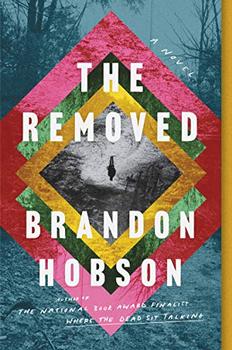Summary | Excerpt | Reviews | Beyond the Book | Readalikes | Genres & Themes | Author Bio

Prologue
Ray-Ray Echota
SEPTEMBER 5
Quah, Oklahoma
THE DAY BEFORE HE DIED, in the remote town of Quah, Oklahoma, Ray-Ray Echota rode his motorcycle down the empty stretch of highway, blowing past rain puddles and trees, a strong wind pressing against his body. He was fifteen years old. Workers along the side of the road wore orange vests and white hard hats. They didn't pay any attention to him as he flew past them, hunched forward working the throttle. He rode for the pureness of the thrill and for the isolation of riding alone in an area where few police officers ever patrolled. Clouds hung low and pale before him as he rode home past fields and old buildings, heading east into the hills, landscape and sky blending into the horizon.
That night he did impersonations at home to entertain his parents. While Ernest and Maria watched their police drama on TV, Ray-Ray staggered into the living room wearing dark sunglasses and waving a cane around, pretending he was blind. He stood in front of them, blocking their view of the TV, and spoke in his best French accent: "Care to help an old blind man, monsieur? I am in need of assistance."
"Funny," Maria said. "Isn't he funny, Ernest?"
"I'm trying to watch my show," Ernest said.
"But monsieur," Ray-Ray said.
Ernest leaned forward and watched Ray-Ray as he removed his sunglasses and went through his usual impersonations: Pee-wee Herman, Marlon Brando's Vito Corleone, even Ernest's friend Otto, who told old Cherokee stories drunk:
"Listen, Chooch," Ray-Ray said in Otto's low drunken voice. He pretended to smoke an imaginary cigarette. "You know the story of Tsala, who was killed for refusing to leave the land? Let's go get another whiskey."
"Not bad," Ernest said. "We'll probably see him tomorrow at the Cherokee National Holiday."
The following day, September 6, marked the anniversary of the 1839 signing of the Constitution of the Cherokee Nation in Oklahoma. Ernest spoke with an unfamiliar excitement in his voice about the date's importance. "This is a very important day for all of us, since it marks the Trail, so we should honor it." September 6 usually fell close to Labor Day weekend and brought people from all over the country to Oklahoma. The Echotas planned to spend the entire weekend watching stickball games, attending powwows, pageants, and art shows.
Outside, a storm was heading west instead of east. A soft rain pattered against the window, the beginning of a thunderstorm. The night was cool. The house smelled of fried catfish from dinner, which they had eaten on TV trays there in the living room.
"Did you finish your homework?" Maria asked Ray-Ray.
"The paper is done. A-plus with smiley face. I bid you all good night. Ave atque vale."
"What?"
"It's Latin for hail and farewell. Ave atque vale."
"Sure, sure," Maria said. "Now go play with your little brother."
Edgar, the youngest sibling, was sitting on a blanket playing quietly with Legos in the corner of the room, as he often did. Ray-Ray limped over to him, dragging his leg like a wounded soldier, and collapsed. He began helping Edgar stack Legos together.
When Ray-Ray was younger he had fallen out of the tree in their backyard, breaking his leg in three places. He'd spent a few days in the hospital, where he told the nurse he had learned to levitate like the false prophet Simon Magus.
"I flew up in the air forty, fifty feet and then fell," he said. "That explains the broken leg."
The nurse looked at Ernest and Maria, confused.
"My son has an active imagination," Ernest kept saying, which was true. Ray-Ray always carried with him a notebook in which he scribbled song lyrics and sketched strange creatures, beasts with fire shooting from their eyes and tongues hanging from their mouths, chubby old men with pig snouts instead of noses, and Uktena and Tlanuwa, the mythic hawks who carried away babies. Ernest and Maria encouraged his artistry, his drawings and impersonations, and also loved how he enjoyed searching outside near the lake for animal bones, bird bones, and feathers to make necklaces. How he wore certain shirts he said were for healing. How he was fascinated by the sky and would go lie down and watch the stars at night. How he mowed lawns and cleaned roof gutters for two summers until he earned enough money to buy his own 250cc Nighthawk, the motorcycle he would ride to the mall in Tulsa on September 6, the day he was shot by a police officer.
Excerpted from The Removed by Brandon Hobson. Copyright © 2021 by Brandon Hobson. Excerpted by permission of Ecco. All rights reserved. No part of this excerpt may be reproduced or reprinted without permission in writing from the publisher.
If every country had to write a book about elephants...
Click Here to find out who said this, as well as discovering other famous literary quotes!
Your guide toexceptional books
BookBrowse seeks out and recommends the best in contemporary fiction and nonfiction—books that not only engage and entertain but also deepen our understanding of ourselves and the world around us.